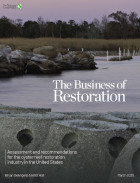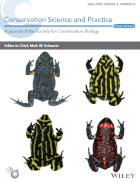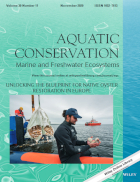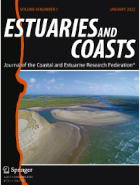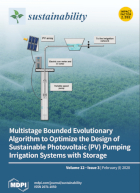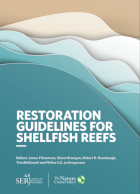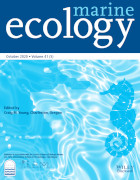Bryan DeAngelis
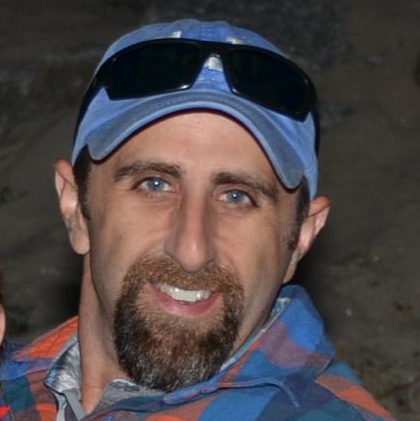
Lead Scientist
Marine
[email protected]
Bryan DeAngelis is the Lead Scientist for the Ocean Recovery Strategy of California’s Oceans Team. He also continues to work across TNC’s North America Region, providing strategic and technical leadership to coastal conservation and restoration work across the country and globally. Bryan has a proven history leveraging science to launch and manage innovative ecologically and socially meaningful coastal restoration programs. These range from helping launch the Gulf Corps Program in the Gulf designed to implement habitat restoration work across all five states while simultaneously advancing employment opportunities for young adults; to the Pacific Coast Ocean Restoration Initiative in California which is one of the largest, ecosystem-based, multi-partner restoration programs ever launched on the west coast of the U.S. Recently, Bryan has worked to advance California’s ability to implement habitat restoration for key biogenic habitats, including kelp, seagrass and oysters by advancing key science bottlenecks, and raising the ambition for scaled restoration through strategic policy, science and partnership-led initiatives.
Prior to joining TNC, Bryan worked at NOAA’s Restoration Center where he worked to advance both community-based and Natural Resource Damage Assessment projects. In his free time, Bryan enjoys spending time with his daughters, surfing and coaching youth soccer.
What Bryan is working on now:
Most recently, Bryan has been helping lead TNC California’s Ocean Recovery Strategy by providing thought leadership and guidance to our team to launch new and innovative science and on-the-ground projects focused on advancing kelp, oyster and seagrass recovery and restoration throughout the state. He is also currently serving as a project and science lead on the Pacific Coast Ocean Restoration Initiative, working with over a dozen partners to ensure the PCOR Initiative results in impactful science that propels the state’s ability for sustainable ecosystem restoration for rocky reef habitats. Bryan is also contributing to the Conservancy’s habitat and fisheries goals by leading an effort to advance the science and applicability of estimating and applying the augmented production of fish and invertebrates from seagrass habitat in San Diego Bay. Outside of California, Bryan works closely with the Conservancy’s USGR staff and has developed and manages two separate large-scale cooperative agreement with NOAA’s Office of Habitat, including a recent $25M institutional award with NOAA which is funding TNC to implement several natural resource damage assessment related restoration projects around the country.
Select products
2025 | Marine | Planning | Science | Publications & Reports
The Business of Restoration: Assessment and recommendations for the oyster reef restoration industry in the United States
Bryan DeAngelis, Elliot Hall
We must radically increase the pace, scale, and impact of restoration to recover the abundance, resilience, and benefits of coastal ecosystems. This project explored the current size of the…2022 | Marine | Planning | Science | Publications & Reports
Restoring shellfish reefs: Global guidelines for practitioners and scientists
James A. Fitzsimons, Simon Branigan, Chris L. Gillies, Robert D. Brumbaugh, Jun Cheng, Bryan M. DeAngelis, Laura Geselbracht, Boze Hancock, Andrew Jeffs, Tein McDonald, Ian M.McLeod, Bernadette Pogoda, Seth J. Theuerkauf, Marine Thomas, Stephanie Westby, Philine S.E. zu Ermgassen
Widespread global declines in shellfish reefs have led to growing interest in their restoration and protection. With restoration projects now occurring on four continents and in at least seven…2022 | Marine | Planning | Science | Publications & Reports
The benefits of bivalve reef restoration: A global synthesis of underrepresented species
Philine S. E. zu Ermgassen, Ruth H. Thurstan, Jorge Corrales, Heidi Alleway, Alvar Carranza, Norbert Dankers, Bryan DeAngelis, Boze Hancock, Flora Kent, Ian McLeod, Bernadette Pogoda, Qing Liu, William G. Sanderson
Bivalve habitat restoration is growing in geographic extent and scale globally. Stakeholders and funders are increasingly drawn to shellfish restoration for the many ecosystem services these habitats…2022 | Marine | Planning | Science | Publications & Reports
Estimating and Applying Fish and Invertebrate Density and Production Enhancement from Seagrass, Salt Marsh Edge, and Oyster Reef Nursery Habitats in the Gulf of Mexico
Philine S. E. zu Ermgassen, Bryan DeAngelis, , Jonathan R. Gair, Sophus zu Ermgassen, Ronald Baker, Andre Daniels, Timothy C. MacDonald, Kara Meckley, Sean Powers, Marta Ribera, Lawrence P. Rozas & Jonathan H. Grabowski
Seagrasses, oyster reefs, and salt marshes are critical coastal habitats that support high densities of juvenile fish and invertebrates. Yet which species are enhanced through these nursery habitats,…2022 | Marine | Planning | Science | Publications & Reports
Social Factors Key to Landscape-Scale Coastal Restoration: Lessons Learned from Three U.S. Case Studies
Bryan M. DeAngelis, Ariana E. Sutton-Grier, Allison Colden, Katie K. Arkema, Christopher J. Baillie, Richard O. Bennett, Jeff Benoit, Seth Blitch, Anthony Chatwin, Alyssa Dausman, Rachel K. Gittman, Holly S. Greening, Jessica R. Henkel, Rachel Houge, Ron Howard, A. Randall Hughes, Jeremy Lowe, StevenB. Scyphers, Edward T. Sherwood, Stephanie Westby, Jonathan H. Grabowski
This study examined three case studies involving large-scale and long-term restoration efforts including the seagrass restoration effort in Tampa Bay, Florida, the oyster restoration effort in the…2022 | Marine | Planning | Science | Publications & Reports
Restoration Guidelines for Shellfish Reefs
J. Fitzsimons, S. Branigan, R.D. Brumbaugh , T. McDonald, and zu Ermgassen, P.S.E. (eds), Bryan M. DeAngelis, chapter author
The purpose of this guide is to provide guidance in decision-making for establishing shellfish reef restoration projects and examples of different approaches undertaken byexperienced practitioners in…2020 | Marine | Science | Publications & Reports
After the nursery: Regional and broad-scale movements of sharks tagged in the Caribbean
Bryan Legare, Bryan DeAngelis, Gregory Skomal
Broad-scale movements of highly migratory species, such as sharks, present unique management challenges as fish migrate across international boundaries, thereby exposing them to different levels of…